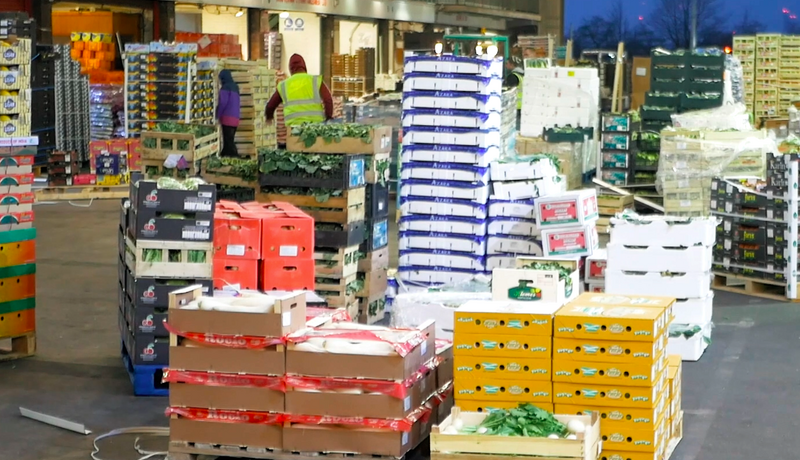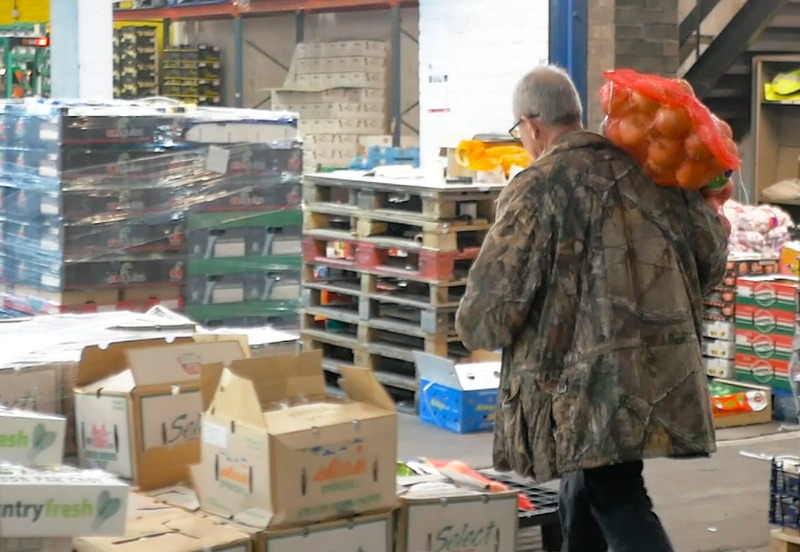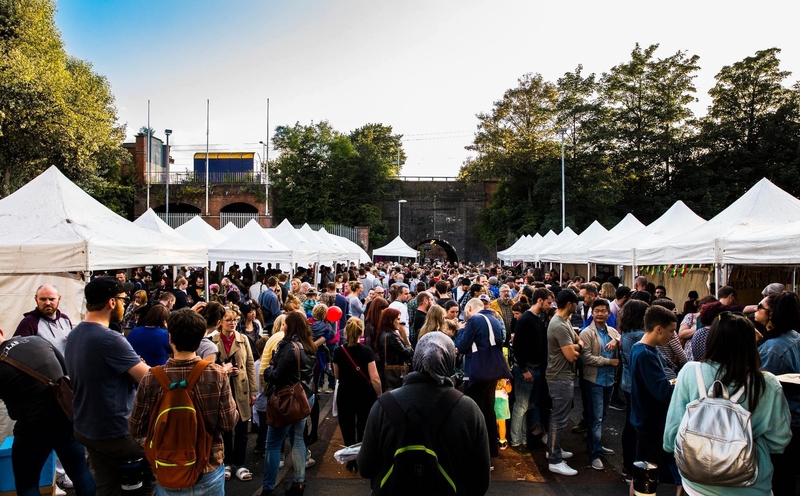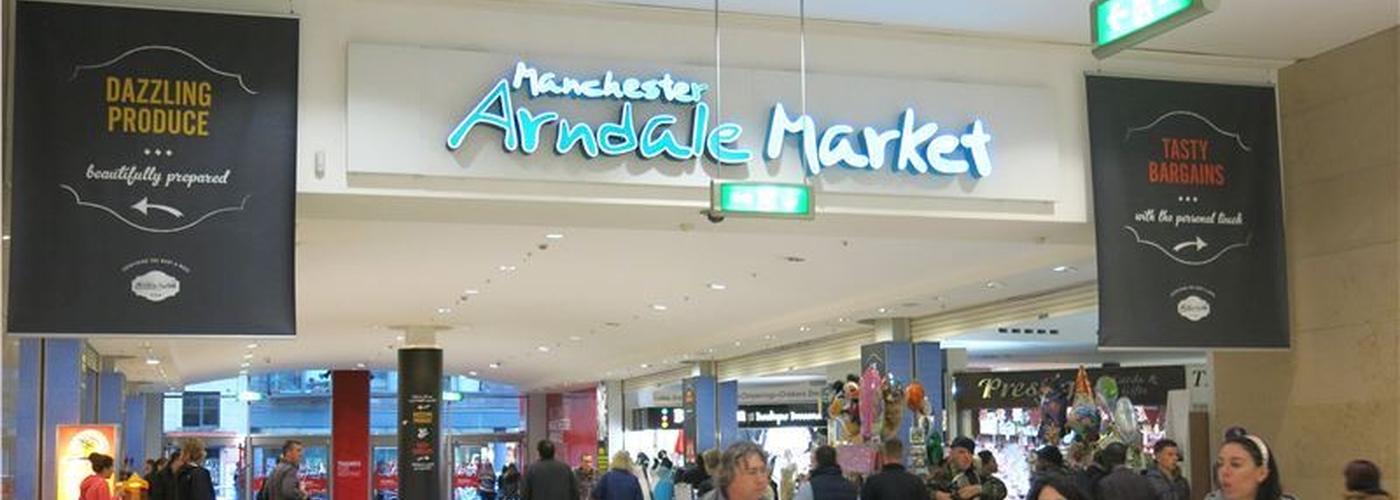The council have been implementing strict safety measures in a new phased approach
More than two months after they were closed in response to the COVID-19 pandemic, the first steps will be taken this week to reopen some of Manchester’s markets.
Since March 21st, only New Smithfield Market was allowed to continue to trade - under strict safety measures - due to its importance in the local food supply chain.
It has been a difficult period for traders, who have been forced to place their livelihoods on hold, and also for neighbourhoods who view their local market as a cornerstone of the community.
While it will be a different shopping experience, it will be just one of many things we will be getting used to in the coming months
On Thursday 11th June Gorton Market will reopen initially on reduced days and hours for food and essential services, operating Thursday to Saturday 10am-4pm. This will be followed by the outdoor market on Thursday 18th June, all other retail on Thursday 25th June and personal services on Saturday 4th July.
The Arndale Food Market will also be reopened for food and non-essential businesses from Monday 15th June.

The markets service is hoping to have the remainder of the retail markets open by mid July. This will see phased openings at Longsight and Wythenshawe, followed by the Sunday market and car boot at New Smithfield Market.
The phased approach allows the council to support traders through the process of reopening, and will allow them to respond to any issues with this new system. Although there has been a lack of clarity until recently on when and how non-essential businesses could reopen, the council has been planning in advance on how people can get back to work safely.
Customers can expect to see protocols which mirror those seen in supermarkets, including limiting the number of people in the market areas, one-way systems, hand sanitisers at entry points and social distancing practices in place. Opening days and times have also been reduced in order for deep cleansing to be carried out regularly.

'Even though lockdown restrictions are being loosened, it is important to note that Manchester is not through the pandemic,' says a statement recently issued from Manchester City Council.
'Social distancing guidelines are still in effect and we will continue to ensure that the health of traders, our staff and the public is protected.'
In advance of this phased process of opening traders have been supported through a risk assessment process and given any relevant advice they need on how to trade safely, in line with current health guidelines.
Councillor Luthfur Rahman, executive member for skills, culture and leisure, said: “I firstly want to commend our traders for the grace and patience they have shown throughout the lockdown. The decision to close our markets was not taken lightly and we want to acknowledge the sacrifices they have made.
“For several weeks we have been working on how to make sure the public and traders will be able to go about their business as safely as possible. While it will be a different shopping experience, it will be just one of many things we will be getting used to in the coming months as the city begins to recover. The markets have been a big absence in our daily lives and I am pleased that we will soon see them return.”

But some market organisers say that even more can be done to protect Greater Manchester’s markets and to support the traders that operate within them.
The teams behind Levenshulme Market, recently voted 'Best Small Outdoor Market' at the UK Market Awards, and home-grown street food champions GRUB, have made a joint public statement aimed at Manchester City Council and other prominent local figures, in an attempt to improve the support available to local markets.
'We are writing an open letter to the people of Manchester, as well as those people in local government/business, to support the region’s markets and market traders to ensure that in the first instance they survive, but beyond that they are allowed to contribute to the 'build back better' strategy by delivering the economic and social benefits that markets are capable of,' says the joint statement.
It then goes to point out that due to the impact of the COVID-19 pandemic, the United Kingdom is very likely going to suffer from a recession leading to significant unemployment as well as a reduction in living standards across the board. As current advice suggests that outside spaces are lower risk environments, the demand for market-based businesses is likely to increase.
'Sadly Manchester does not currently have the thriving market culture you would expect of such a major, international city and this is in large part down to the lack of support for market operators and traders,' the statement continues.
To achieve a thriving market community in Manchester they are asking Manchester City Council and Manchester Markets to consider reducing market license fees for the next 12 months.
'If you want to operate a market (with at least five stalls) then you need to apply to Manchester Markets and if your application is successful then an administration fee of £55 plus a license fee of £4.50 per stall per day is applicable. This is a significant cost to market operators who, (for) the most part, already work on small margins (especially for those operators who already pay business rates for the property where the market takes place). In return for their fees the market operator does not receive anything apart from the permission to operate and the profits from Manchester Markets (£160,000 in 2018) are paid to the council so it is to all intents and purposes a market tax.'
Levenshulme Market and GRUB feel that with a change of strategy and minimal re-investment of their profits, Manchester Markets could do even more to support the market community leading to increased economic and social benefits for the wider community – which will ultimately generate more income for the council further down the line.
The statement has been sent out to members of Manchester City Council, including Andy Burnham, Richard Leese, Nigel Murphy, Luthfur Raman, Angelika Stogia, Suzanne Richards, local councillors for Levenshulme and Cheetham Hill and night-time economy ‘tzar’ Sacha Lord.
“We're sincerely hoping this will generate substantial support both from the public and others who can assist in our shared aims to improve the support available to local markets,” says Richard Hirst, market manager for Levenshulme Market CIC. “We think if we can resolve these issues there is huge potential for markets to deliver great benefits to our communities, especially if we all work together.”
Levenshulme Market and GRUB's open letter in full:
Build Back Better Through Markets
Last month political leaders from the North West including Manchester mayor Andy Burnham suggested that we should 'build back better' following the current public health crisis with the aim of delivering locally a 'cleaner, safer, stronger and crucially fairer' society. With this in mind we are writing today an open letter to the people of Manchester as well as those people in local government/business to support the region’s markets and market traders to ensure that in the first instance they survive but beyond that they are allowed to contribute to the 'build back better' strategy by delivering the economic and social benefits that markets are capable of.
The current situation is that due to the impact of the COVID-19 pandemic the United Kingdom is very likely going to suffer from a recession leading to significant unemployment as well as a reduction in living standards across the board. At the same time the risk to public health is an ongoing concern for all individuals and businesses seeking to return to some form of normality which will quite rightly affect consumer and business owner confidence. The current advice suggests that outside spaces are a lower risk environment and as a result the demand for businesses to operate in outside spaces will increase. Markets are in a fairly unique position to be able to address both of these issues directly.
It is widely accepted that markets provide significant economic and social benefits including but not limited to:
- Offering huge opportunity to new businesses/entrepreneurs with low barriers to entry
- Providing environmentally sustainable models of retailing
- Generating funds for local councils to reinvest in communities
- Traditional markets supply basic/staple goods to people on lower incomes at an affordable price
- Act as platforms for community cohesion
- A market visit is a social experience providing interaction and a positive environment for many people in the community
- Attracting visitors from outside the local area providing a boost to local businesses
- Spending money at a local market means more money stays in the local economy
- Markets can operate in under utilised spaces
These economic and social benefits will be even more valuable whilst the region is recovering from the effects of the pandemic.
Sadly Manchester does not currently have the thriving market culture you would expect of such a major, international city and this is in large part down to the lack of support for market operators and traders. All markets are licensed by Manchester Markets who also operate the council owned markets such as New Smithfield Market, The Arndale Market and the Christmas Markets. If you want to operate a market (with at least five stalls) then you need to apply to Manchester Markets and if your application is successful then an administration fee of £55 plus a license fee of £4.50 per stall per day is applicable. This is a significant cost to market operators who (for) the most part already work on small margins (especially for those operators who already pay business rates for the property where the market takes place). In return for their fees the market operator does not receive anything apart from the permission to operate and the profits from Manchester Markets (£160,000 in 2018) are paid to the council so it is to all intents and purposes a market tax.
Another point to consider is that Manchester Markets' policy is to avoid actively penalising those market operators in the area who fail to apply for a license. This means it is only those responsible market operators who apply for a license that are taxed and regulated. We feel that with a change of strategy and minimal re-investment of their profits Manchester Markets could do great things to support the market community of Manchester leading to increased economic and social benefits for the wider community at the same time as generating more income for the council further down the line.
To achieve the goal of creating a thriving market community in Manchester we are asking Manchester City Council and Manchester Markets to consider the following requests:
- An immediate significant reduction in market license fees for the next 12 months to a level that enables existing independent markets to continue operating.
- A pledge of support that going forward an open conversation will be had (including traders, operators and wider stakeholders) as to how we can not only ensure the survival of the market operators and traders that exist today but also create a community where markets can thrive and contribute to the social and economic rebuilding of the region.
- Following those conversations actions will be taken to ensure markets and market traders are provided with support to grow in return for the payment of their market license fees.
With all parties working together we are confident that we can build a first class support network for traders and operators that not only generates direct income for the council but also provides a well needed contribution to the social and economic health of the city. We hope one and all will support us in this effort.
Levenshulme Market and GRUB















